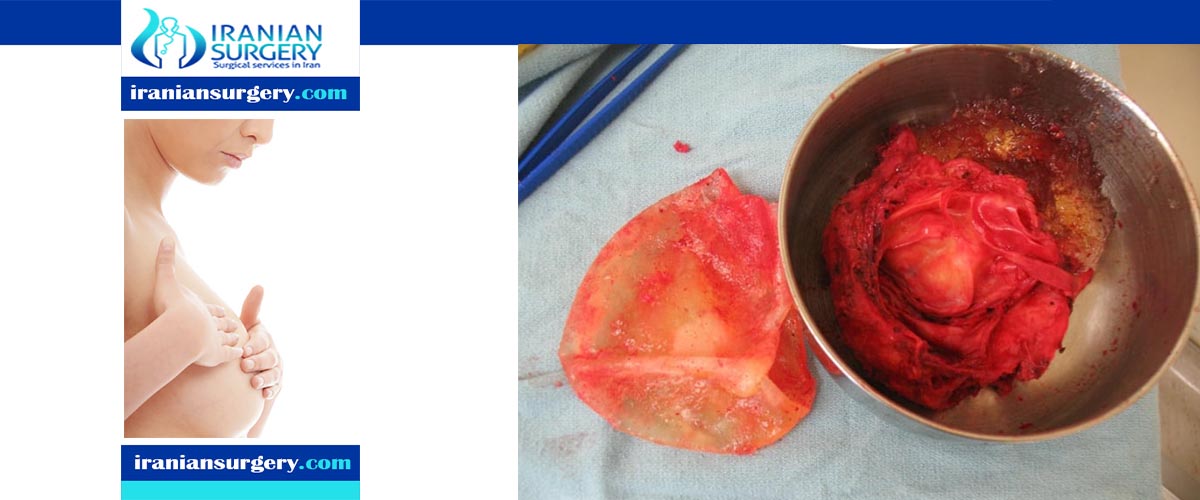Connection between breast implants and cancer

Is BIA-ALCL breast cancer?
What are the symptoms of BIA-ALCL?
Where in the breast has BIA-ALCL been found?
Do breast implants increase cancer risk?
Which breast implants are linked to cancer?
Why are implants linked to cancer?
Connection between breast implants and cancer
What’s the relationship between breast implants and cancer risk? The Food and Drug Administration (FDA) recently released a recall of a certain type of breast implant with a textured surface—BIOCELL, manufactured by Allergan. The FDA acted after reports of 573 cases of cancer and 33 deaths worldwide from a rare lymphoma were associated with these breast implants. In all, 481 of those cancer cases involve patients who, according to the FDA release, "are reported to have Allergan breast implants at the time of diagnosis."
Known as breast implant-associated anaplastic large cell lymphoma (BIA-ALCL), this cancer is a rare T-cell type of non-Hodgkin's lymphoma that is not breast cancer, but rather a cancer of the immune system. The news has many women who have had breast reconstruction after a mastectomy or cosmetic breast augmentation concerned about their health.
According to Susan G. Komen, a few studies have even shown that women with breast implants have a lower risk of breast cancer. But this lower risk is likely due to traits of women who tend to choose breast implants. For instance, these women tend to be thin, which lowers the risk of breast cancer. “The study only demonstrates an association of reduced survival rate from non-localised (advanced) breast cancer in women with breast implants rather than a cause. The authors also quote many papers that show no association between breast implants and an increase in breast cancer.”
The statistics:
40,000 Breast augmentations in 2011.
56% Increase since 2007.
26% Increased risk with an implant of being diagnosed late with breast cancer.
38% Increased risk with an implant of dying from breast cancer.
Read more about: Breast Implant in Iran
Read more about: Radiotherapy for breast cancer
What is BIA-ALCL?
Is BIA-ALCL breast cancer?
Breast Implant Associated Lymphoma (BIA-ALCL) is not breast cancer - it is a type of non-Hodgkin’s lymphoma (cancer of the immune system). In most cases, BIA-ALCL is found in the scar tissue and fluid near the implant, but in some cases, it can spread throughout the body. An individual’s risk of developing BIA-ALCL is considered to be low; however, this cancer is serious and can lead to death, especially if not treated promptly. In most patients, it is treated successfully with surgery to remove the implant and surrounding scar tissue, and in some patients, also treatment with chemotherapy and radiation therapy.
What are the symptoms of BIA-ALCL?
The main symptoms of BIA-ALCL are persistent swelling or pain in the area of the breast implant. These symptoms may occur well after the surgical incision has healed, often years after implant placement.
Upon evaluation by a health care provider, evidence of fluid collection around the breast implant (seroma) is often observed. Some patient reports indicated that a lump under the skin or capsular contracture (thick and noticeable scar capsule around the implant) were present.
Read more about: Breast cancer biopsy
Read more about: Side Effects Of Breast Cancer Treatment
Where in the breast has BIA-ALCL been found?
In the case studies reported in the literature, BIA-ALCL is usually found near the breast implant, contained within the fibrous scar capsule, and not in the breast tissue itself. The illustration below shows the location of the ALCL in these reports. In most cases, the ALCL cells were found in the fluid surrounding the implant (seroma) or contained within the fibrous scar capsule.
Do breast implants increase cancer risk?
Breast implants don’t cause breast cancer. They don’t raise your chances of breast cancer, either. But research does show that women with breast implants have a higher chance of anaplastic large-cell lymphoma (ALCL).
Read more about: Stage 2 Breast Cancer Treatment Timeline
Read more about: Cancer treatment in Iran
Which breast implants are linked to cancer?
Breast implants have a silicone outer shell that can be either smooth or textured, and the main known risk factor for BIA-ALCL is having a textured implant. In January 2011, the FDA announced that women with breast implants seem to be more likely to develop ALCL (anaplastic large cell lymphoma), a rare cancer of the immune system. This apparent link was confirmed.
Why are implants linked to cancer?
Experts aren’t entirely sure why breast implants make you more likely to get ALCL. What they do know is that 93% to 96% of the women who get ALCL have textured implants. That means their casing is bumpy instead of smooth.
Like smooth implants, textured implants are used for cosmetic and reconstructive breast surgery. Textured implants are less likely to move or cause your skin to ripple. But experts think their textured surface may trigger some women’s immune systems to respond in a way that leads to cancer.
Read more about: breast lift(Mastopexy)
Read more about: Breast implant risks

